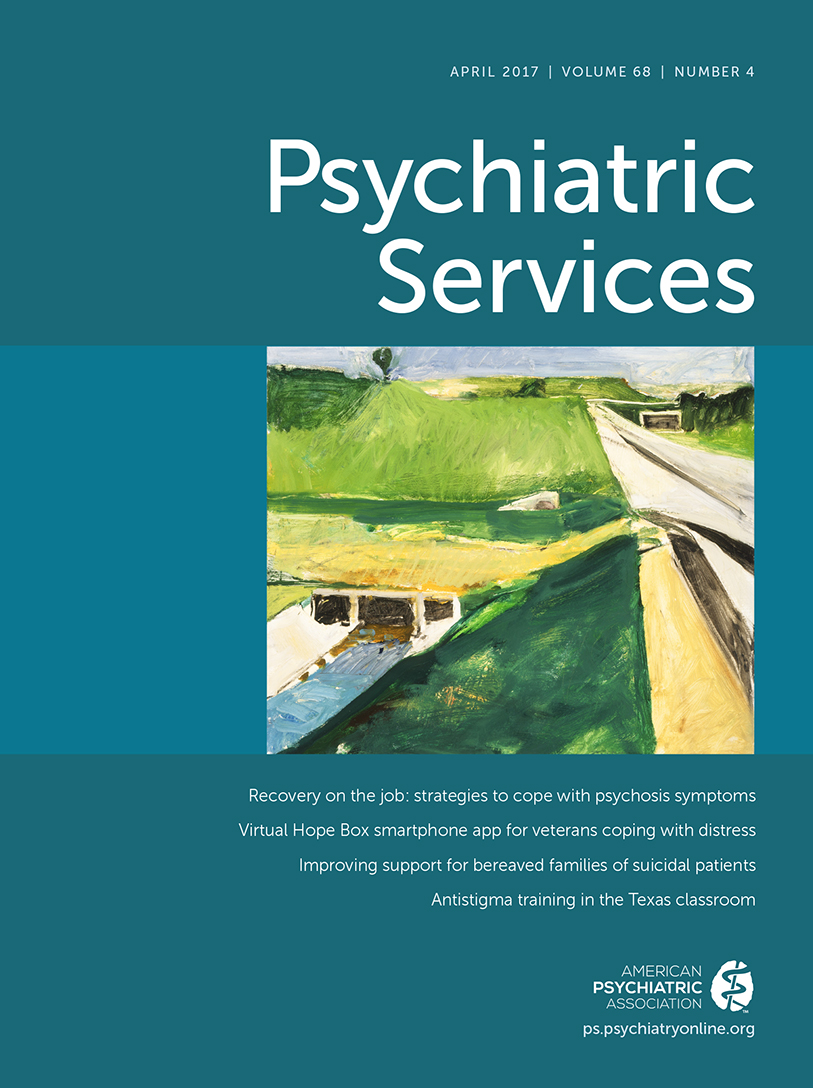Veteran Peer Support: What Are the Mechanisms?
TO THE EDITOR: In response to the 2002 President’s New Freedom Commission on Mental Health, the U.S. Department of Veterans Affairs (VA) spearheaded an unprecedented expansion of peer support services, hiring over 971 peers since 2005 to work in VA medical centers across the country. Peers are individuals in stable recovery from mental illness who function as service providers within systems of care (1). The underlying rationale for employing peers is that their lived experiences with mental illness equip them to inspire hope, destigmatize mental illness, and empathically support clients. Peer services seem efficacious in promoting clinical and recovery outcomes in the VA health care system (2), but as the VA continues to invest additional resources in these programs, we need to know how and why peers successfully engage clients.
VA researchers have a sense of what the mechanisms might be (3) but have yet to test them. In the future, researchers can audio-record interactions between peers and clients and then analyze the content of these conversations to connect any emerging themes to outcomes. Alternatively, researchers can conduct interviews with clients to capture their perceptions of peer support. Inviting clients to read vignettes and asking them to identify the details that are most compelling, destigmatizing, and informative could be useful in training peers on how to tell impactful recovery stories.
Peers may be most effective when they are relatable to clients. In general people tend to seek out others with the same identities to find solidarity and understanding; however, this process can be complicated because identities are multifaceted. People in recovery may regard some aspects of their identity as more important than others, and may even regard some aspects negatively in certain social situations (for example, an adoptee with a salient racial identity but no connection to his or her heritage or a veteran who was dishonorably discharged). The assumption in the VA is that sharing experiences of mental illness and military service are enough to foster connections between peers and clients; however, researchers must explore whether these connections are stronger depending on the degree of concordance of identities.
VA peers also have served in the military, which may be enough to engage clients regardless of mental health status. For example, peer support from a veteran without mental illness can be effective when used to facilitate chronic pain interventions (4). Interactive effects between veteran status and mental illness might exist, as we have observed that clients tend to respect peers who have combat experience and combat-related traumas. These peers in theory should deliver services with greater force and reach. On the other hand, a client with misgivings about having served in the military might not identify with decorated veterans, in which case the client would benefit more from peer support found in clubhouses and self-help groups.
The complexity of identity obfuscates the likelihood that people will relate to one another, calling for an extensive investigation of the putative mechanisms of peer support to guide the hiring, training, supervision of peer providers.
1 : Peer support services for individuals with serious mental illnesses: assessing the evidence. Psychiatric Services 65:429–441, 2014Link, Google Scholar
2 : A brief peer support intervention for veterans with chronic musculoskeletal pain: a pilot study of feasibility and effectiveness. Pain Medicine 16:81–87, 2015Crossref, Medline, Google Scholar
3 : Integrating peer-provided services: a quasi-experimental study of recovery orientation, confidence, and empowerment. Psychiatric Services 59:1307–1314, 2015Link, Google Scholar
4 : Peer support/peer provided services underlying processes, benefits, and critical ingredients. Psychiatric Rehabilitation Journal 27:392–401, 2004Crossref, Medline, Google Scholar



